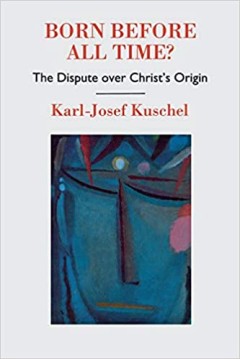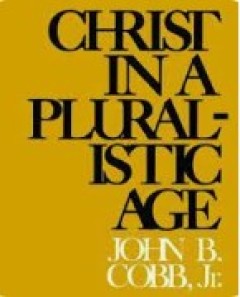Ditapis dengan

Born Before All Time?: The Dispute Over Christ's Origin
- Edisi
- First Published
- ISBN/ISSN
- 334-00111-0
- Deskripsi Fisik
- 664 pgs.; 24 cm.
- Judul Seri
- -
- No. Panggil
- 232 KUS b
- Edisi
- First Published
- ISBN/ISSN
- 334-00111-0
- Deskripsi Fisik
- 664 pgs.; 24 cm.
- Judul Seri
- -
- No. Panggil
- 232 KUS b

Jesus Christ at the Encounter of World Religions
- Edisi
- First Published
- ISBN/ISSN
- 0-88344-724-X
- Deskripsi Fisik
- xi + 301 pgs.; 23 cm.
- Judul Seri
- -
- No. Panggil
- 232 DUp j
- Edisi
- First Published
- ISBN/ISSN
- 0-88344-724-X
- Deskripsi Fisik
- xi + 301 pgs.; 23 cm.
- Judul Seri
- -
- No. Panggil
- 232 DUp j

Christ Proclaimed: Christology as Rhetoric
- Edisi
- First Published
- ISBN/ISSN
- 0-8091-2208-1
- Deskripsi Fisik
- xiii + 616 pgs.; 20,5 cm.
- Judul Seri
- -
- No. Panggil
- 232 BEE c
- Edisi
- First Published
- ISBN/ISSN
- 0-8091-2208-1
- Deskripsi Fisik
- xiii + 616 pgs.; 20,5 cm.
- Judul Seri
- -
- No. Panggil
- 232 BEE c

Christ Faith and History: Cambridge Studies in Christology
- Edisi
- First Published
- ISBN/ISSN
- 0-521-08421-2
- Deskripsi Fisik
- x + 303 pgs.; 21,5 cm.
- Judul Seri
- -
- No. Panggil
- 232 CHR c
- Edisi
- First Published
- ISBN/ISSN
- 0-521-08421-2
- Deskripsi Fisik
- x + 303 pgs.; 21,5 cm.
- Judul Seri
- -
- No. Panggil
- 232 CHR c

Christological Perspectives
- Edisi
- First Published
- ISBN/ISSN
- 0-8298-0491-9
- Deskripsi Fisik
- xii + 306 pgs.; 23,5 cm.
- Judul Seri
- -
- No. Panggil
- 232 CHR c.a
- Edisi
- First Published
- ISBN/ISSN
- 0-8298-0491-9
- Deskripsi Fisik
- xii + 306 pgs.; 23,5 cm.
- Judul Seri
- -
- No. Panggil
- 232 CHR c.a

Christ in a Pluralistic Age
In this approach to understanding the meaning of Christ in the present world the noted process theologian examines in depth two factors of modern experience which have obscured that meaning -- the "profane" consciousness of many people today and the wide acceptance of pluralism. The author then presents Christ as the image of a creative transformation that can lead to a deepening of Christian e…
- Edisi
- First Published
- ISBN/ISSN
- 0-664-20861-4
- Deskripsi Fisik
- 287 pgs.; 23,5 cm.
- Judul Seri
- -
- No. Panggil
- 232 COB c

The Practice of Jesus
- Edisi
- First Published
- ISBN/ISSN
- 0-88344-397-X
- Deskripsi Fisik
- xxi + 122 pgs.; 23,5 cm.
- Judul Seri
- -
- No. Panggil
- 232 ECH p
- Edisi
- First Published
- ISBN/ISSN
- 0-88344-397-X
- Deskripsi Fisik
- xxi + 122 pgs.; 23,5 cm.
- Judul Seri
- -
- No. Panggil
- 232 ECH p

Jesus Christ and Mythology
In this book the great New Testament scholar provides a strictly historical presentation of the teachings of Jesus in the setting of the thought of his own time.
- Edisi
- First Published
- ISBN/ISSN
- 0-684-17228-3
- Deskripsi Fisik
- 94 pgs.; 20,5 cm.
- Judul Seri
- -
- No. Panggil
- 232 BUL j

Did Jesus Know He Was God?
Provides the most definitive answer to the question asked in the title. The author was moved by the widespread confusion centered around this question and felt it was necessary to clarify what the Catholic Church has always taught.
- Edisi
- First Published
- ISBN/ISSN
- 0-85342-943-X
- Deskripsi Fisik
- xiii + 154 pgs.; 19,5 cm.
- Judul Seri
- -
- No. Panggil
- 232 DRE d

Christ in a Changing World: To ward an Ethical Christology
- Edisi
- First Published
- ISBN/ISSN
- 0-8245-0105-5
- Deskripsi Fisik
- xi + 183 pgs.; 23,5 cm.
- Judul Seri
- -
- No. Panggil
- 232 DRI c
- Edisi
- First Published
- ISBN/ISSN
- 0-8245-0105-5
- Deskripsi Fisik
- xi + 183 pgs.; 23,5 cm.
- Judul Seri
- -
- No. Panggil
- 232 DRI c
 Karya Umum
Karya Umum  Filsafat
Filsafat  Agama
Agama  Ilmu-ilmu Sosial
Ilmu-ilmu Sosial  Bahasa
Bahasa  Ilmu-ilmu Murni
Ilmu-ilmu Murni  Ilmu-ilmu Terapan
Ilmu-ilmu Terapan  Kesenian, Hiburan, dan Olahraga
Kesenian, Hiburan, dan Olahraga  Kesusastraan
Kesusastraan  Geografi dan Sejarah
Geografi dan Sejarah